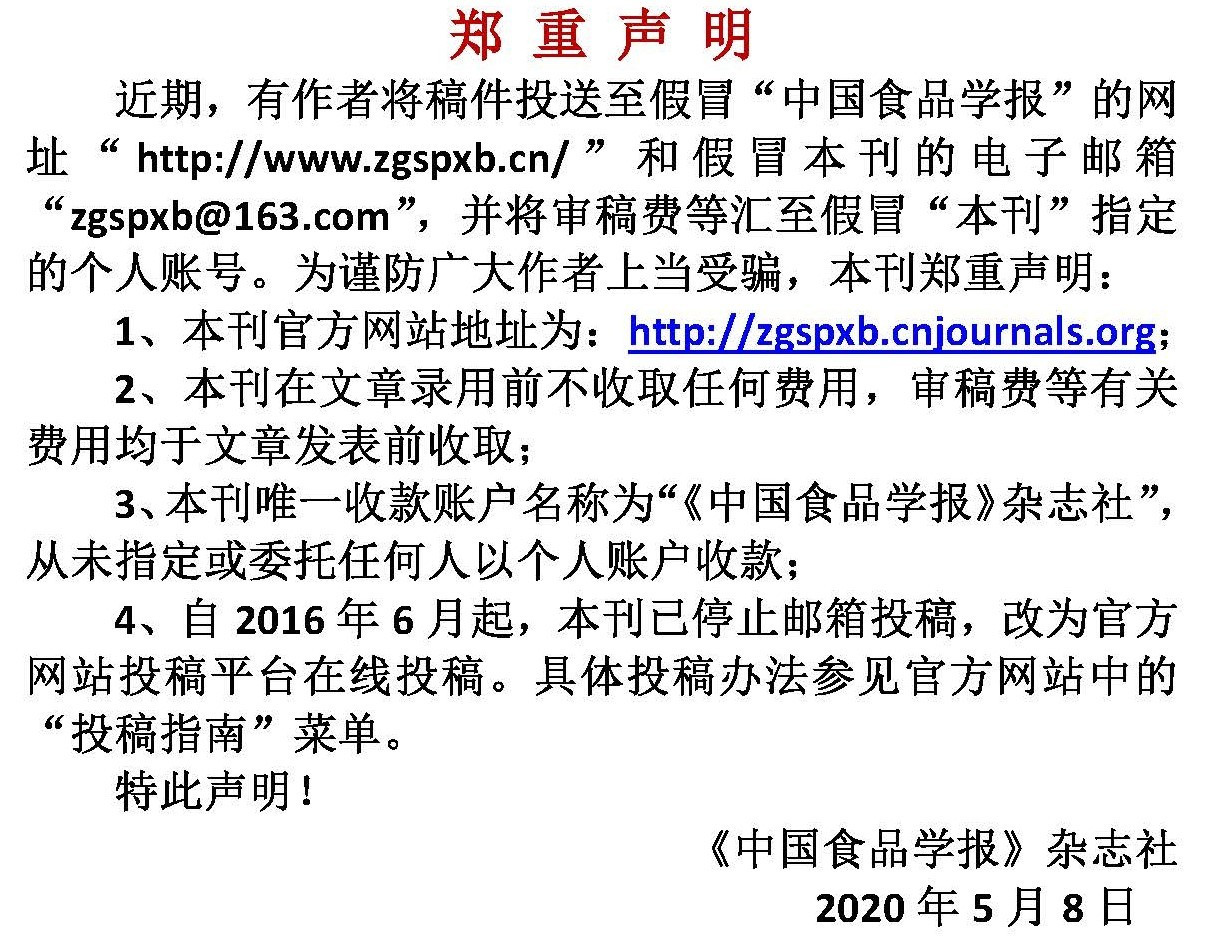ε-聚赖氨酸-活性剂预混溶液的制备及在油浸食品中的抑菌活性
作者:
作者单位:
(浙江工商大学食品与生物工程学院 杭州 310018)
作者简介:
通讯作者:
中图分类号:
基金项目:
国家自然科学基金面上项目(31871830)
Preparation of ε-Polylysine-active Agent Premixed Solution and Its Antibacterial Activity in Oil-infused Food
Author:
Affiliation:
(School of Food Science and Biotechnology, Zhejiang Gongshang University, Hangzhou 310018)
Fund Project:
引用本文
何兴芬,方亚倩,李延华,房升,孟岳成,陈杰.ε-聚赖氨酸-活性剂预混溶液的制备及在油浸食品中的抑菌活性[J].中国食品学报,2022,22(11):309-317
复制分享
文章指标
- 点击次数:
- 下载次数:
- HTML阅读次数:
历史
- 收稿日期:2021-11-12
- 最后修改日期:
- 录用日期:
- 在线发布日期: 2022-12-28
- 出版日期:
文章二维码

版权所有 :《中国食品学报》杂志社 京ICP备09084417号-4
地址 :北京市海淀区阜成路北三街8号9层 邮政编码 :100048
电话 :010-65223596 65265375 电子邮箱 :chinaspxb@vip.163.com
技术支持:北京勤云科技发展有限公司
地址 :北京市海淀区阜成路北三街8号9层 邮政编码 :100048
电话 :010-65223596 65265375 电子邮箱 :chinaspxb@vip.163.com
技术支持:北京勤云科技发展有限公司
